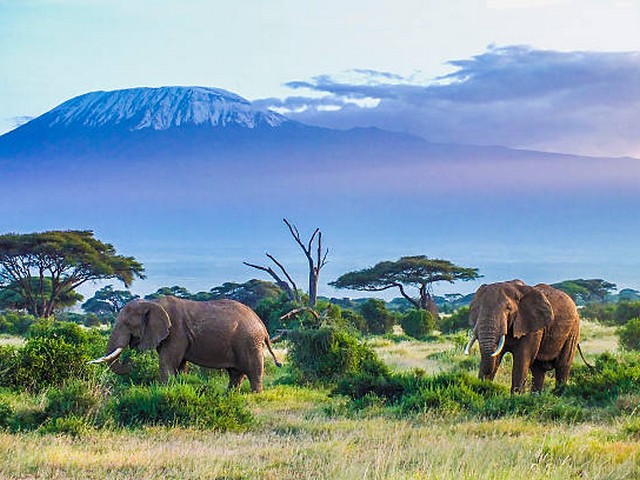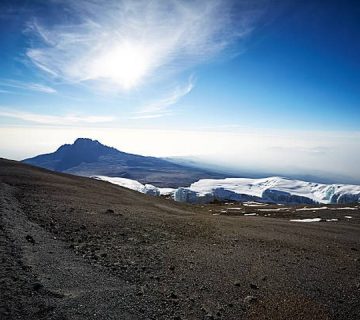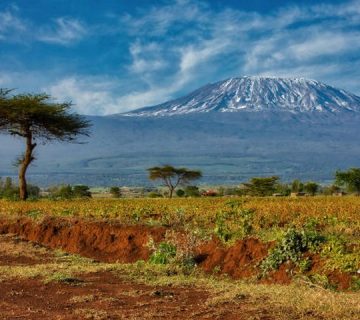How Kilimanjaro Trekking Helps Local Development
Mount Kilimanjaro, the towering beacon of Tanzania, is not just a summit to conquer; it's a vibrant ecosystem, a cultural hub, and a key player in local development. Every year, thousands of adventurers flock to this majestic mountain, driven by the dream to stand atop the highest peak in Africa. But have you ever wondered how your journey up this iconic mountain contributes to the communities at its base? In this blog post, we'll explore the transformative impact that trekking on Kilimanjaro has on local development, and why booking your climb with the Kilimanjaro Centre for Trekking and Ecotourism (KCTE) is a step towards supporting this incredible region.
The Economic Impact: Empowering Local Communities
Job Creation and Skill Development
The trekking industry around Mount Kilimanjaro is a vital source of employment for local residents. Every Kilimanjaro expedition supports a range of jobs – from guides and porters to cooks and camp managers. At KCTE, we are proud to employ a skilled team of locals, providing them not just with jobs, but with career development opportunities. Our staff undergo regular training in safety, language skills, and customer service, ensuring they grow professionally and personally through their work.
Boosting Local Businesses
Every trekker needs equipment, food, and accommodation, which creates a significant demand for local goods and services. This demand boosts local businesses and leads to the development of new enterprises. At KCTE, we prioritize sourcing our supplies from local vendors, from fresh produce for your meals to the handcrafted souvenirs available at our gift shop. By choosing KCTE, you help inject financial resources directly into the local economy, promoting sustainable economic growth.
Environmental Conservation: Protecting Kilimanjaro's Ecosystem
Sustainable Trekking Practices
Kilimanjaro's fragile ecosystem is vulnerable to the impacts of tourism. At KCTE, we are committed to sustainable trekking practices that minimize environmental footprints. This includes everything from waste management systems that ensure trash is properly disposed of to energy solutions that reduce the need for firewood on the mountain. By trekking with us, you participate in a conservation effort that protects the mountain for future generations.
Conservation Initiatives and Community Engagement
Part of the revenue generated from our trekking tours is allocated to conservation initiatives. These projects range from reforestation efforts to water conservation campaigns, all designed to preserve Kilimanjaro's natural beauty. Moreover, we engage local communities in these projects, providing them with the knowledge and resources to become stewards of their environment.
Cultural Preservation: Celebrating Local Heritage
Cultural Interaction and Exchange
Trekking Kilimanjaro is more than just a physical challenge; it's a cultural immersion. Villages surrounding Kilimanjaro have rich traditions and stories that are integral to the Tanzanian heritage. At KCTE, we facilitate cultural tours and community visits that allow trekkers to learn about local customs, participate in traditional activities, and understand the history of the region. This not only enriches your trekking experience but also helps preserve and celebrate the unique cultures of Kilimanjaro's indigenous communities.
Supporting Artisan Crafts and Performances
We also support local artisans by providing platforms where they can showcase and sell their crafts, such as jewelry, pottery, and textiles. Additionally, we sponsor traditional performances, allowing locals to earn income through cultural displays. This not only helps artisans and performers sustain their livelihoods but also keeps local cultures vibrant and accessible to visitors.
FAQ Section
Q1: How does booking with KCTE contribute to local development?
A1: Booking your Kilimanjaro trek with KCTE directly supports local jobs, businesses, and conservation efforts. We invest a portion of our revenue back into the community through various development and conservation projects.
Q2: What measures does KCTE take to ensure sustainable trekking?
A2: KCTE implements strict waste management protocols, uses energy-efficient resources, and conducts regular training sessions for our team on environmental conservation practices.
Q3: Can I participate in local community projects during my trek?
A3: Yes, KCTE offers opportunities for trekkers to engage in community projects, like school visits and reforestation drives. This allows for a deeper connection with the local communities and a chance to contribute positively.
Q4: How does KCTE ensure that local culture is respected and preserved?
A4: We work closely with local elders and cultural leaders to ensure our tours and interactions are respectful and beneficial to the community. We also provide cultural sensitivity training to our staff and trekkers.
Take Action: Climb and Contribute
When you choose to embark on your Kilimanjaro journey with Kilimanjaro Centre for Trekking and Ecotourism (KCTE), you're not just choosing an adventure; you're choosing to make a difference. Each step you take up the mountain is a step towards supporting local development. Experience the joy of reaching the summit while knowing that your journey has contributed to sustaining the communities and preserving the environments of this magnificent region.
Ready to make a difference? Book your Kilimanjaro climb with KCTE today and be a part of a bigger story. Together, let's tread softly, climb passionately, and impact positively.
Climb with us, climb for good.




